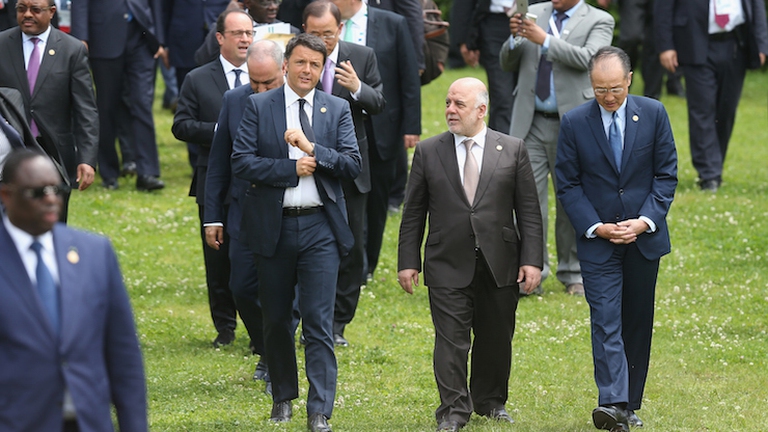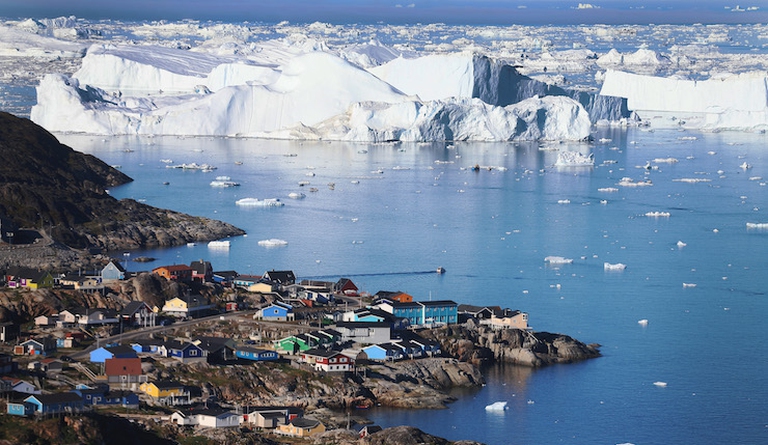
The 26th edition of the United Nations Climate Change Conference, COP26, will be held in Glasgow, Scotland in November 2020. The pre-COP will take place in Milan, Italy.
Secondo l’Onu, le promesse di riduzione dei gas a effetto serra avanzate finora non basteranno a limitare la crescita della temperatura a 2ºC entro il 2100.
As of the COP19, the climate change conference held in Warsaw in 2013, governments decided to officially declare their promises to reduce greenhouse gas emissions. Just a few weeks ahead of the COP21, to be held in Paris, 155 countries let their promises be known. However, they vary a lot from one another.
For instance, the US declared an emissions decrease of 26-28% by 2025 (compared to 2005 levels), whilst the European Union set a 40% decrease by 2030 (compared to 1990 levels). India pledged for a decrease of 33-35%, whilst Russia aims at a 25-30% decrease. On the other hand, China didn’t promise a drop, but a “maximum peak” to be reached by 2030. Other governments decided to measure their decrease considering the “Business as usual” (BAU), instead of calculating emissions on an annual basis. In this case, decreases are calculated considering the emissions governments would reach if no action is taken.
In order to make those pledges clearer and understand their real value, the United Nations has provided a report considering 146 intended nationally determined contributions (INDCs), communicated by 1 October 2015. Christiana Figueres, executive secretary of the UN Framework Convention on Climate Change (UNFCCC), explained that – to date – such declarations “have the capability of limiting the forecast temperature rise to around 2.7°C”. This means the rise will be way higher than that set by governments (2°C), necessary to avoid catastrophic consequences.
Therefore, promises are not enough. Indeed, NGOs consider the UN evaluation to be optimistic. According to Nicolas Hulot, President of the French Fondation Nicolas-Hulot and France’s specialist reporter at COP21, we are going to exceed 3°C. For this reason, he believes governments must periodically review their commitments. “The countries of the G20, responsible for three quarter of global emissions, could take on this initiative and redefine their pledges starting from 2016 or 2017”.
Not to mention the recent news about the upward review of China’s data on emissions. The world’s giant, responsible for most of the global greenhouse gas emissions, underestimated the figures on its use of coal. About a billion tonnes of CO2 in the atmosphere was not considered, an amount equal to Germany’s total emissions in a year.
Siamo anche su WhatsApp. Segui il canale ufficiale LifeGate per restare aggiornata, aggiornato sulle ultime notizie e sulle nostre attività.
![]()
Quest'opera è distribuita con Licenza Creative Commons Attribuzione - Non commerciale - Non opere derivate 4.0 Internazionale.
The 26th edition of the United Nations Climate Change Conference, COP26, will be held in Glasgow, Scotland in November 2020. The pre-COP will take place in Milan, Italy.
Thanks to activists, the voice of the world’s peoples resounded through the COP25 like an alarm bell. Governments didn’t reach the results they demanded, but their cries and messages were stronger than ever, reaching even those who weren’t in Madrid.
Climate change poses a risk for millions. However, women are the most vulnerable to its negative consequences: a few simple considerations by the Italian Climate Network help us perceive the global implications of this.
The COP25 ended two days late and with very few steps ahead made. Climate negotiations in 2020 will be an uphill battle as political will clearly seems to be lacking, once again.
The last ten years have been the most “exceptional” and hottest decade ever, with extreme weather hitting people and ecosystems harder and more frequently. 2019 is also on course to becoming the second or third hottest year since records began.
Unite Behind the Science: this was the title of the conference held at the COP25 on 10 December. Greta Thunberg’s presence filled the arena, but this time it was scientists’ turn to speak.
25,000 delegates meet for the COP25 from 2 to 13 December. What can we hope this UN climate change conference, whose venue was changed from Santiago de Chile to Madrid, will achieve?
100 eminent people from all over the world, including Vandana Shiva, Naomi Klein and Noam Chomsky, have signed an open letter after the disappointing results of the COP24. A call-to-arms for climate against world leaders’ indifference.
The outcome of the COP24 in Katowice left many unsatisfied. Greta Thunberg, a young Swedish environmental activist, gave a harsh, heartfelt speech addressing world leaders.









